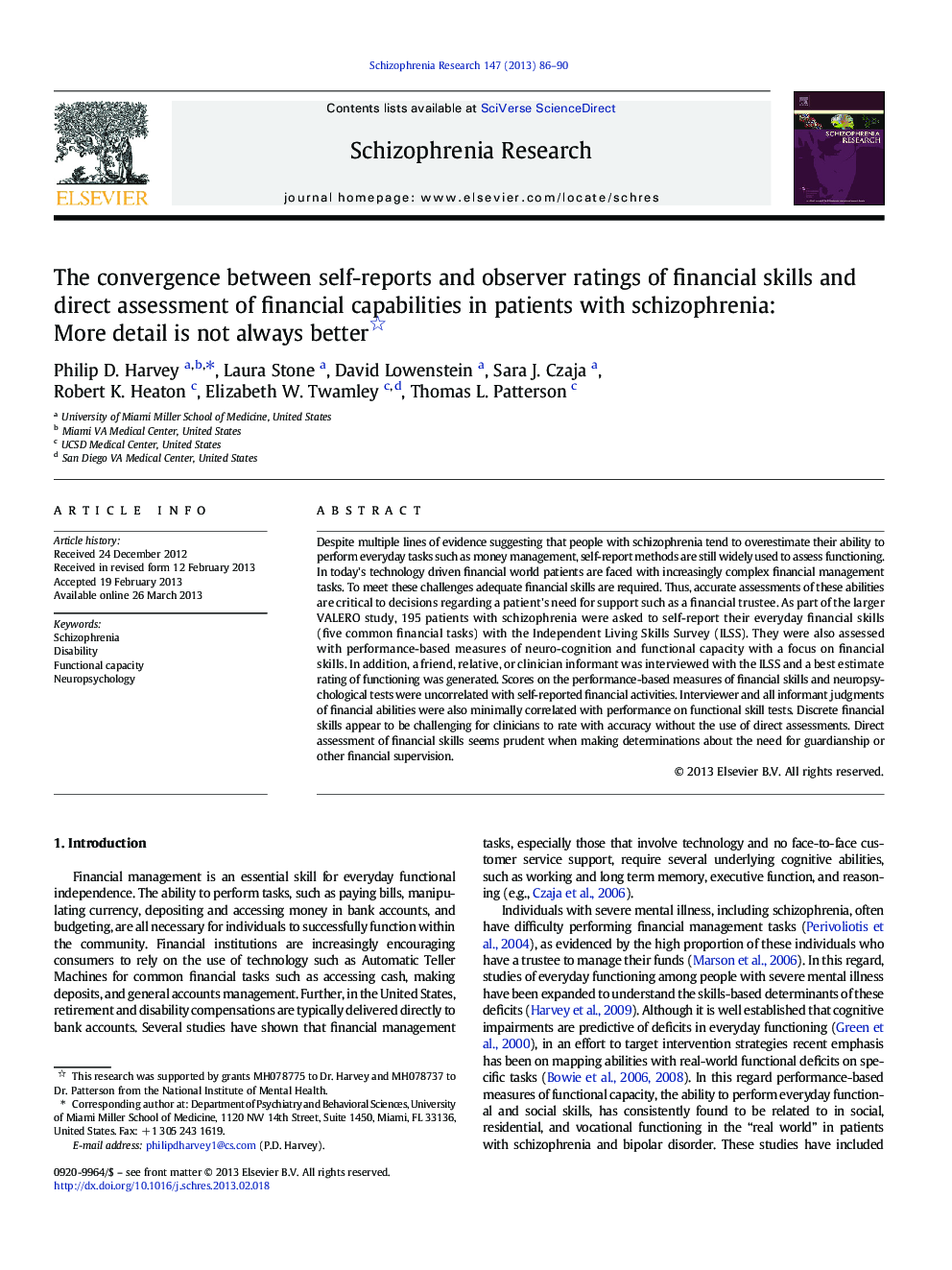| Article ID | Journal | Published Year | Pages | File Type |
|---|---|---|---|---|
| 10309067 | Schizophrenia Research | 2013 | 5 Pages |
Abstract
Despite multiple lines of evidence suggesting that people with schizophrenia tend to overestimate their ability to perform everyday tasks such as money management, self-report methods are still widely used to assess functioning. In today's technology driven financial world patients are faced with increasingly complex financial management tasks. To meet these challenges adequate financial skills are required. Thus, accurate assessments of these abilities are critical to decisions regarding a patient's need for support such as a financial trustee. As part of the larger VALERO study, 195 patients with schizophrenia were asked to self-report their everyday financial skills (five common financial tasks) with the Independent Living Skills Survey (ILSS). They were also assessed with performance-based measures of neuro-cognition and functional capacity with a focus on financial skills. In addition, a friend, relative, or clinician informant was interviewed with the ILSS and a best estimate rating of functioning was generated. Scores on the performance-based measures of financial skills and neuropsychological tests were uncorrelated with self-reported financial activities. Interviewer and all informant judgments of financial abilities were also minimally correlated with performance on functional skill tests. Discrete financial skills appear to be challenging for clinicians to rate with accuracy without the use of direct assessments. Direct assessment of financial skills seems prudent when making determinations about the need for guardianship or other financial supervision.
Related Topics
Life Sciences
Neuroscience
Behavioral Neuroscience
Authors
Philip D. Harvey, Laura Stone, David Lowenstein, Sara J. Czaja, Robert K. Heaton, Elizabeth W. Twamley, Thomas L. Patterson,
